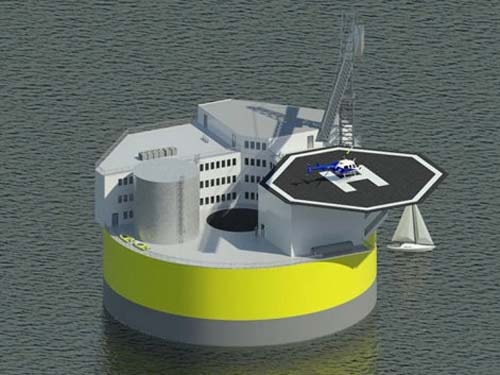Nuclear power plant at sea, can withstand tsunami?
Where is the safest place for a nuclear power plant? It seems to be the ocean. A nuclear power plant concept from the Massachusetts Institute of Technology (MIT) suggests a facility built on a floating platform in deep water, several miles off the coast.
 |
Proponents of the idea explain that locating a nuclear power plant offshore would have several major advantages. First, it would be immune to earthquakes, tsunamis, and landslides. The biggest concern about being at sea is tsunamis, but researchers have assured the plant's survivability. Because, they say, in deep water, tsunamis would not be large enough to cause significant damage, and earthquakes would only affect land. In addition, floating reactors would make it easier to access the plant, passively cooling it, what MIT scientist Jacopo Buongiorno calls an “infinite heat pool."
This idea may be designed to protect against natural disasters, but it also poses a small risk of its own. Buongiorno describes how, in the event of an emergency, the radioactive gases from the plant would be released into the ocean, rather than into the air. This would protect people living near the plant from radiation, but the big question is, would it protect the environment itself?
Of course it is still just an idea for now, and if developed further it will certainly be safer, and we will have more controllable nuclear power plants in the future.
According to baocongthuong






